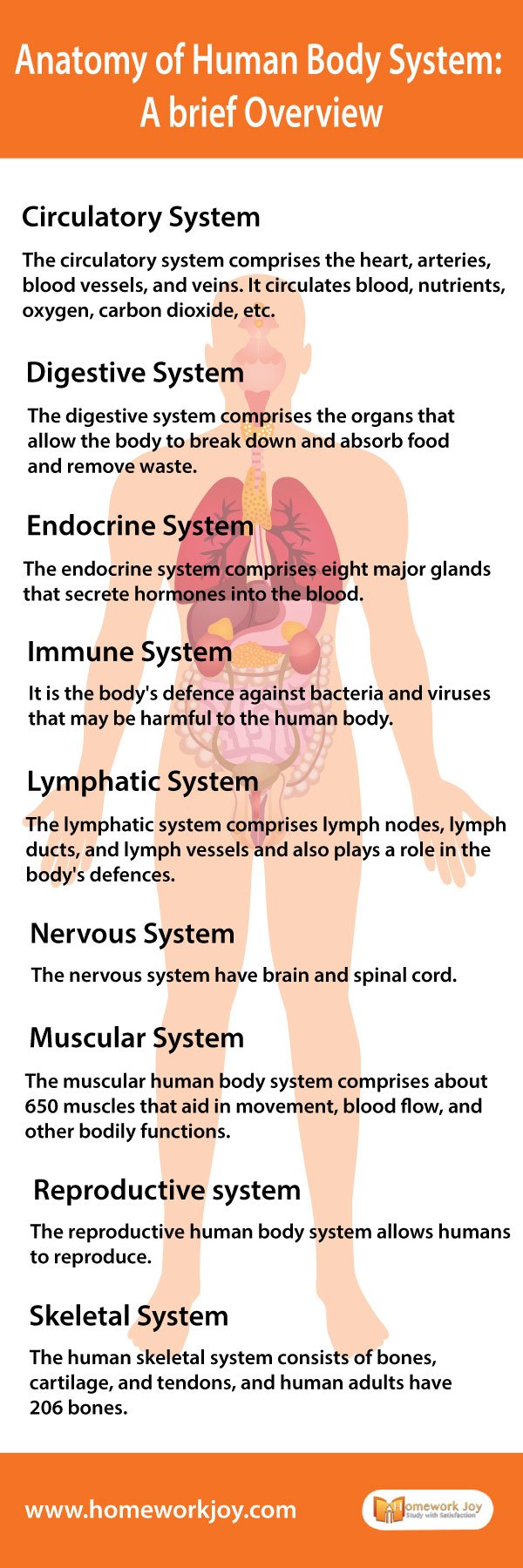The human body system refers to the group of organs that work together to perform certain functions in a human body. There are in total 11 organ systems in the human body. They are given below:
Circulatory System
The circulatory system comprises the heart, arteries, blood vessels, and veins. It circulates blood, nutrients, oxygen, carbon dioxide, and hormones around the body.
Digestive System
The digestive system comprises the organs that allow the body to break down and absorb food and remove waste. It comprises the mouth, oesophagus, stomach, small intestine, large intestine, rectum, and anus.
Endocrine System
The endocrine system comprises eight major glands that secrete hormones into the blood. The hormones further travel to different tissues and regulate various bodily functions, such as metabolism, growth, etc.
Immune System
It is the body’s defence against bacteria and viruses that may be harmful to the human body. It consists of lymph nodes, the spleen, bone marrow, lymphocytes (including B-cells and T-cells), the thymus, and leukocytes, which are white blood cells.
Lymphatic System
The lymphatic system comprises lymph nodes, lymph ducts, and lymph vessels and also plays a role in the body’s defences.
Nervous System
The nervous system have brain and spinal cord. It controls both voluntary action and involuntary actions and sends signals to different parts of the body.
Muscular System
The muscular human body system comprises about 650 muscles that aid in movement, blood flow, and other bodily functions. The types of muscles in the human body are: skeletal muscle, smooth muscle, and cardiac muscle.
Reproductive system
The reproductive human body system allows humans to reproduce. The male reproductive system includes the penis, which produces sperms, whereas the female reproductive system consists of the vagina and the ovaries, which produce eggs.
Skeletal System
The human skeletal system consists of bones, cartilage, and tendons, and human adults have 206 bones. On the contrary, children’s skeletons contain more bones since some of them, including fuse together when they grow up.
Respiratory System
The respiratory system is vital for breathing in and out oxygen and carbon dioxide, respectively. It comprises of lungs, diaphragm, trachea, bronchi, etc.
Urinary System
The urinary system eliminates waste from our body, which is produced when foods are broken.
Integumentary System
The integumentary system is the body’s largest organ, i.e., skin. It protects our body from the outside world and is our first defence against bacteria, viruses, and other pathogens. The integumentary system consists of hair and nails as well.
The human body system defines the system and structure of our body. Each and every organ system is vital for the proper functioning of our body.
